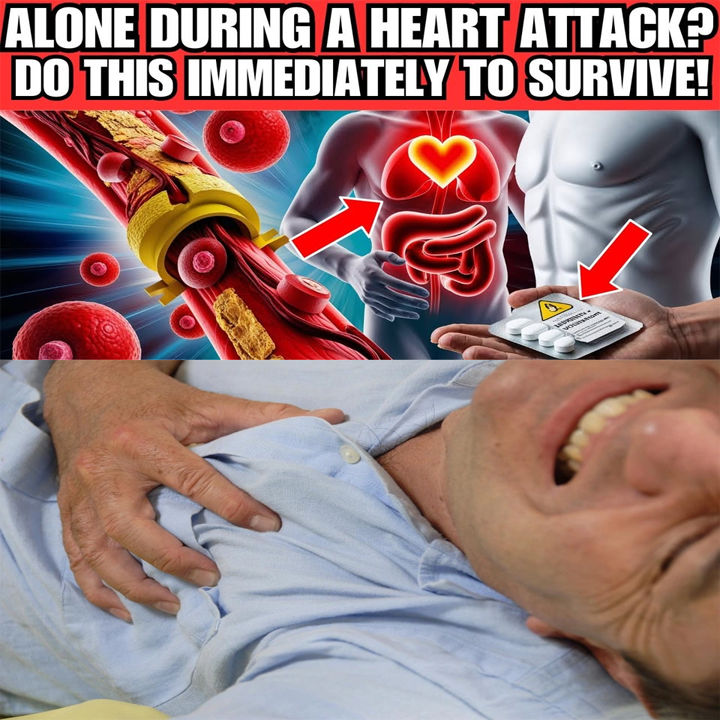.jpg)
A heart attack can be a life-threatening emergency, and knowing how to respond when you’re alone can save your life. This guide covers the essential steps to recognize symptoms, act quickly, and minimize risks. By understanding these strategies, you can be better prepared in such critical situations.
Recognizing Symptoms of a Heart Attack
The first step in responding to a heart attack is recognizing the symptoms. These may include:
- Chest Pain or Discomfort: A pressing or squeezing sensation in the center of the chest.
- Shortness of Breath: Difficulty breathing, even when resting.
- Nausea or Vomiting: Feeling sick to your stomach.
- Dizziness or Lightheadedness: Sudden onset of weakness or fainting.
- Pain in Other Areas: Discomfort in the arms, back, jaw, neck, or stomach.
- Tingling Sensations: A numb or tingling feeling, particularly in the left arm.
If you experience any of these symptoms, take immediate action.
Steps to Take During a Heart Attack
- Call Emergency Services Immediately
- Dial 911 or your local emergency number without delay.
- Clearly describe your symptoms and inform them that you are alone.
- Chew Aspirin (If Advised)
- If you are not allergic and do not have a history of bleeding disorders, chew a 325mg aspirin.
- Aspirin helps thin the blood, improving blood flow to the heart.
- Unlock Your Door
- Ensure the front door is unlocked to allow emergency responders to access your home quickly.
- Sit Down and Stay Calm
- Find a comfortable spot to sit, preferably with back support.
- Breathe deeply and steadily to remain calm and reduce strain on your heart.
- Do Not Drive Yourself
- Driving to the hospital can be dangerous. Wait for an ambulance, which provides medical care en route.
- Notify Someone You Trust
- If possible, text or call a family member, friend, or neighbor to let them know about your condition.
Preventative Measures for Heart Health
Taking steps to reduce the risk of a heart attack is as important as knowing how to handle one. Here are some preventative measures:
1. Regular Health Checkups
- Schedule routine medical exams to monitor your heart health, blood pressure, and cholesterol levels.
2. Adopt a Healthy Lifestyle
- Balanced Diet: Eat plenty of fruits, vegetables, whole grains, and lean proteins.
- Exercise Regularly: Aim for at least 30 minutes of moderate exercise most days of the week.
- Quit Smoking: Smoking is a major risk factor for heart disease.
- Limit Alcohol: Drink in moderation or avoid alcohol altogether.
3. Be Prepared
- Keep your phone charged and within reach at all times.
- Store prescribed medications where they are easily accessible.
- Familiarize yourself with the fastest route to the nearest hospital.
Sharing Knowledge
It’s important to raise awareness about how to respond to a heart attack, especially when alone. Share this information with your friends and family so they can also be prepared for emergencies.
Final Thoughts
Handling a heart attack alone can be frightening, but knowing the proper steps to take can make a critical difference. By recognizing symptoms, acting swiftly, and adopting preventive measures, you can protect your heart health and ensure you’re ready for any emergency.



